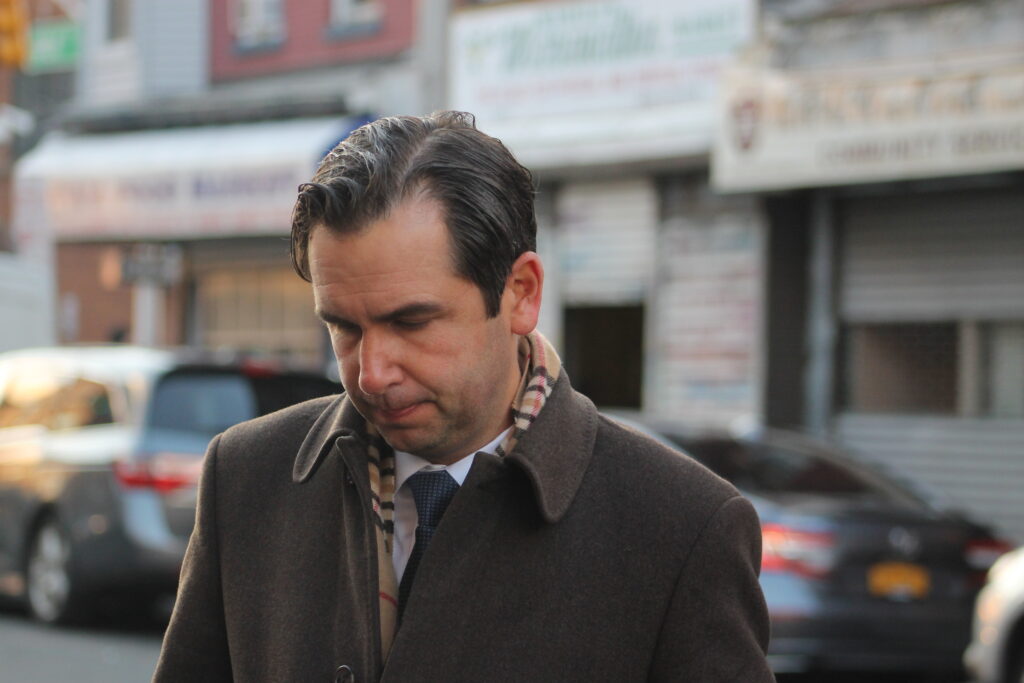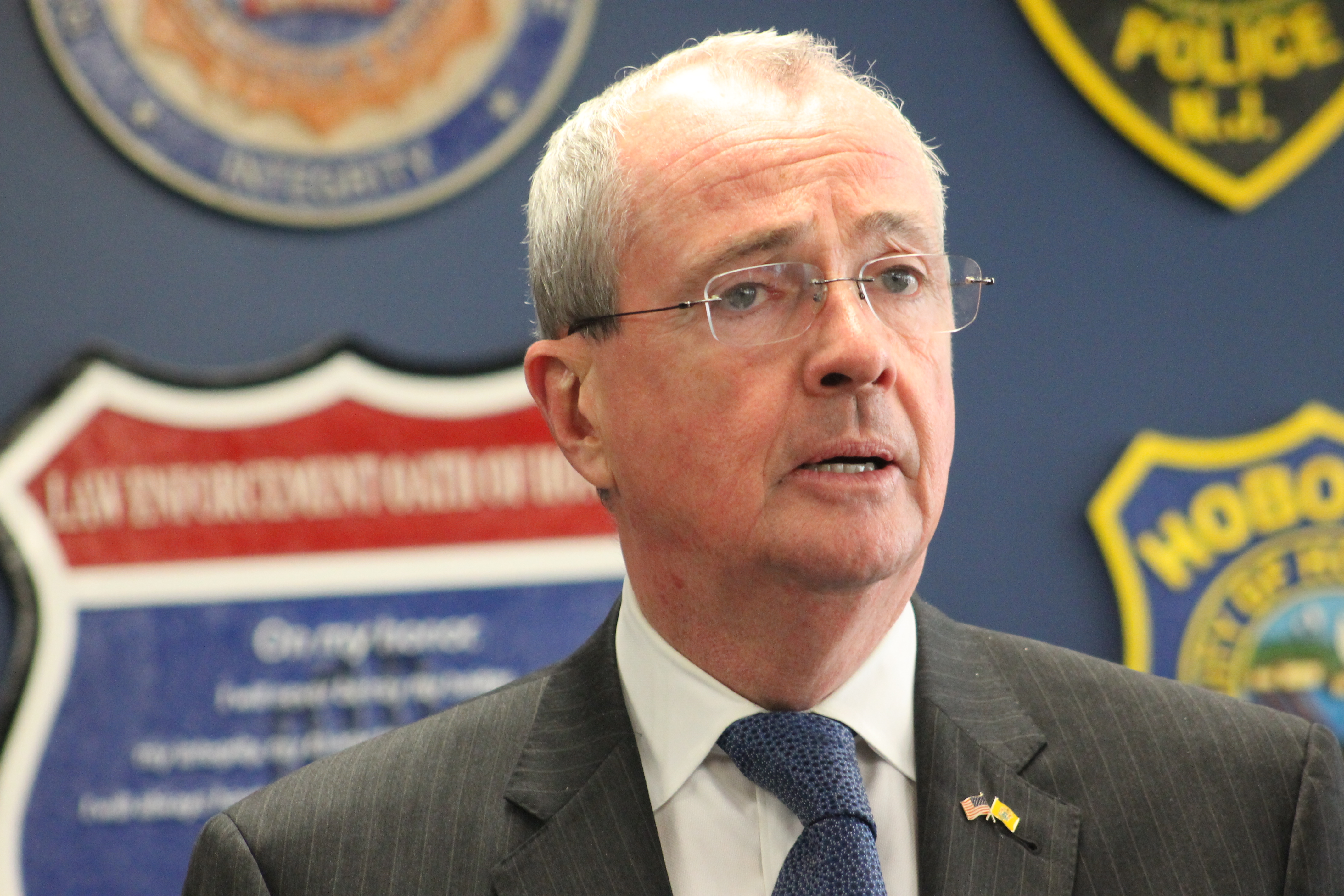Jersey City Mayor Fulop: 'This was a Hate Crime'

A battle of press conferences over the shooting in a Jewish supermarket in Jersey City has raised a fundamental question about what is domestic terrorism. Mayor Steven Fulop is mad as hell at Gov. Phil Murphy and other state and national law enforcement agencies for failing to label the murder of three people and a Jersey City police officer as a hate crime.
Surveillance video and social media posts suggest that the suspects David Anderson and Francine Graham, who were shot to death in the shootout in Jersey City on Dec. 11, had deliberately targeted Jewish merchants and may have been planning an all-out assault on a local yeshiva as well.
For Fulop, who is the son of Jewish Holocaust survivors who owned a grocery store in Newark in which he also worked, the refusal of the governor and others to label the attack “a hate crime” is far too much to bear.

While Murphy did visit the crimes scene late on Dec. 11, he and his staff have yet to determine a motive behind the crime, seeking to wait out the investigation. But for Fulop, waiting is a crime, and that antisemitic social media post showed by one of the attackers showed the motive behind the shooting.
For the son of a Jewish grocer from Newark, this attack is personal, and he said he’s not going to let the governor and others sidestep.
“This was a hate crime,” Fulop said. “These people traveled to this location, bypassing other places along the way, took out a rifle and started to shoot the people inside this store.”
While national and even international media have suggested this was an example of domestic terrorism, Murphy has been reluctant to rush to judgement.
This resulted in a number of press conferences, some conducted by Fulop at the scene of the crime, while Murphy attended one that included the Attorney General, FBI, Homeland Security and local law enforcement elsewhere in the city.
U.S. Rep. Bill Pascrell, Jr. (D-9) was less shy about declaring this as a terrorist act; he continued to blame President Donald Trump rhetoric, which appears to have allowed domestic terrorism to fester.
In a statement Pascrell said he mourned the death of several victims, including Jersey City Police Detective Joseph Seals and Leah Minda Ferencz and Moshe Deutsch, the owners of the Jersey City Kosher market that was attacked by terrorists.
“I am devastated by the terrorist attack in Jersey City. The loss of life is unbearable. Detective Seals was a son of North Arlington and the father of five children. It is no full comfort to his loved ones, but Officer Seals saved lives yesterday. I stand with his grieving family and brothers and sisters in law enforcement who wake up every day to protect our communities. And I mourn Leah Minda Ferencz and Moshe Deutsch and all other victims. They were targeted for being Jewish. No American should feel unsafe because of their religion. Not one. An attack on any person for their religion is an attack on every one of us. Antisemitism is a cancer on the world that must be stamped out wherever it rears its ugly head."
But the cause of Jersey City antisemitism may be a lot closer to home than Washington, D.C.
Local realtors have noted for years that the establishment of a new Hasidic Jewish community in Jersey City may have prompted resentment among poorer residents in the city – who have seen property purchased to accommodate the new community. The supermarket attacked caters to this community.
Jersey City Councilwoman Joyce Watterman disputed this claim, saying in particular that African Americans are “a welcoming community.”
“You can’t judge the whole community by the actions of a few individuals,” she said, even as some local residents mumbled nearby about how the business did not embrace the overall population of the area.
“They have dark windows and aren’t interested in doing business with us,” said one very angry African American man, who had paused to listen to the press conference.
Hudson County Freeholder Bill O’Dea, whose district borders the one in which the incident took place, said there is a rising tension between the new Jewish community and the long-time African American community.
“We need to hold a summit that will bring these groups together to deal with these issues,” O’Dea said.
Watterman agreed that community meetings are necessary if only to allow local residents to vent, and to grieve.
She said she is very disturbed by the lack of information being given to local officials regarding the attack.
The Attorney General’s office had warned media not to seek information from anyone but approved sources.
“But they aren’t telling us anything and the community is asking us what’s going on and we can’t tell them,” Watterman said. “It’s frustrating.”
Police sources, however, are saying the attack was part of something more significant and likely involved more people than the two suspects shot to death in the fire-fight. They also said local police appear to have kept the attack from moving from the store and into a local yeshiva, where police believe the attackers intended to kill kids.
Watterman and O’Dea also agree that Jersey City needs to increase police in the area to help make local residents feel safe.
Fulop said that he has met with Jewish leaders to discuss the issues and concerns and has been proactive in increasing the number of cops on the street as well as their ethnic diversity.lop





